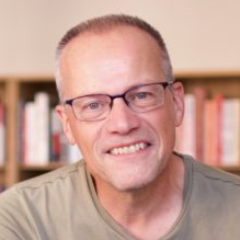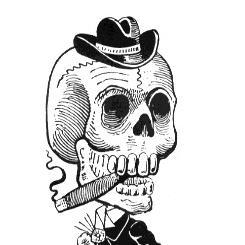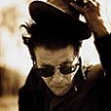Viser 1 til 1 av 1 omtaler
Hailed as one of the greatest haunted house stories ever written, “The Haunting of Hill House” is widely considered a gothic horror classic. That’s why I got so excited to see that the group “Horror or Heaven” chose it is as their group read for September 2024. I think it’s impressive how the book manages to stand out from all the previous haunted house tales, but as I recently discovered, Shirley Jackson did her research: She read papers by psychic researchers and a lot of traditional ghost stories, and she made sketches of fictional buildings as aid for plot development. She seemed so intent on creating a house that seemed uniquely alive and uninviting - an antithesis to the very concept of home.
It was an act of moral strength to lift her foot and set it on the
bottom step, and she thought that her deep unwillingness to touch Hill
House for the first time came directly from the vivid feeling that it
was waiting for her, evil, but patient. (36)
She succeeded. From the very moment I read the first page and stepped into Hill House myself, I knew I was in the clutches of an offensive abomination. Jackson famously opens the novel by warning you that “Within, walls continued upright, bricks met neatly, floors were firm, and doors were sensibly shut; silence lay steadily against the wood and stone of Hill House, and whatever walked there, walked alone”. (2) It was sometimes hard to visualize the house in a concrete and detailed manner in my mind, but then again far too easy to feel and understand the essence of it, to be enveloped by paranoia and nausea by its depressing and menacing presence. An architectural ill will as it is, unmistakably uncanny by a subtle, yet hostile ambience coming off the designs, features and interior that are all demanding to the eye and strenuous on the soul. As such, the house is a character, with its own body, presence, voice and spirit.
Hill house is practically the antagonist of the entire story, challenging, provoking and confronting its residents at every turn.
It had an unbelievably faulty design which left it chillingly wrong in
all its dimensions, so that the walls seemed always in one direction a
fraction longer than the eye could endure, and in another direction a
fraction less than the barest possible tolerable length […] what
nightmares are waiting, shadowed, in those high corners – what breath
of mindless fear will drift across my mouth. (40)
This experience is therefore made possible by the cast of characters, as Jackson renders the Hill House-effect more vividly through, in my opinion, some very likable people. You have the amiable and curious doctor of philosophy and supernatural investigator, Dr. John Montague, who’s just looking for people who “have been involved in abnormal events” in order to “observe and explore the various unsavory stories which had been circulated about the house for most of its eighty years of existence.” (5) You have the sassy and friendly Theodora, the helpful and down-to-earth Luke and - what I perceive to be the main character – Eleanor, who’s deserving of all the sympathy in the world, for she is finally free of her mother’s clutches and able to explore the world and figure herself out and grow and smile. Yet I feel so much for her, for she is self-deprecating to a fault. Eleanors journey in the beginning from when she decides to accept Montague’s invitation and to when she reaches Hill House is a marvel and delight, told like a wonderful fairy tale. Which brings me to my final point.
“I am like a small creature swallowed whole by a monster, she thought,
and the monster feels my tiny little movements inside.” (42)
Part of what makes Hill House the perfect haunted house is not just the untimely deaths of previous residents, it’s how it seems to change people. How it seems to have such an adverse effect on them. These characters shine so brightly in the beginning, but they subtly regress or corrode mentally and physically as the days go by, as if corrupted by a house which seems to pray on their fears to feed whatever dead things lurking in its diabolic recesses, to strengthen whatever ghost is banging on the walls or whispers somewhere in that dark hallway, to oppress sound and force an atmosphere of eerie silence upon you.
“The sense was that it wanted to consume us, take us into itself, make
us a part of the house.” (139)
I won’t spoil what, but the characters do of course have their fair share of experiences. The purpose of their stay there is scientific, and theories are suggested along the way about what happens – events that are not explicit enough to be supernatural, yet still far enough from merely suggestive of some natural circumstance. Does Jackson ever reveal the source of the haunting? Readers are left to their own devices with that question.
Or rather: it will forever haunt them.








































